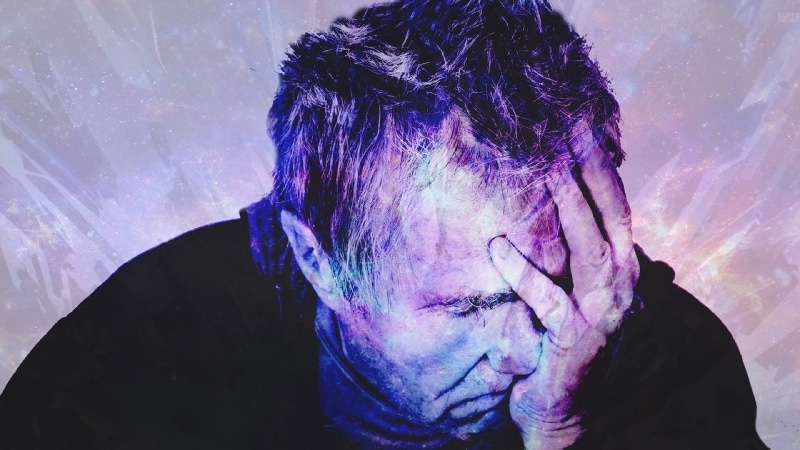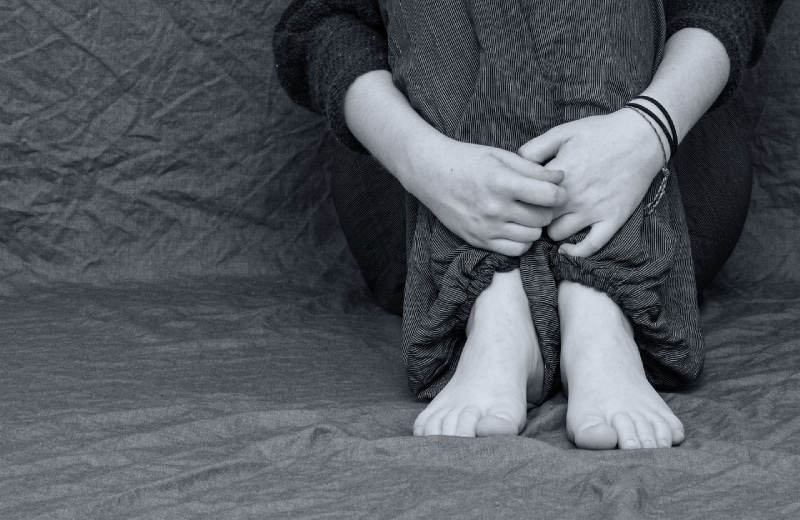Empathy sounds like a positive attribute; being able to put yourself in another’s place and experience what they feel. Yet, to many, being empathic is far from being a good thing. There is a big difference in the common empathetic social response (cognitive empathy) and a psychic empathy reaction (emotional empathy). To the highly sensitive psychic, the curse of emotional empathy is huge. It rules their life and can cause untold pain unless they learn how to manage it.

What is Psychic Empathy?
Psychic empathy can take many forms. Most don’t affect people too deeply. There are empaths who feel via psychometry; the ability to pick up energy from objects. Aura readers, too, can be empathic. Anyone with a modicum of psychic ability will feel empathy in some way.
The most well-known is emotional empathy, which can affect around 5% of the population. Emotional empathy is when you are strongly affected by the emotions of another person or animal. You feel their emotional pain, anguish, worry, and sometimes, their happiness. Some describe it as having ‘inner demons’. It is though the feelings and thoughts arise from a place which is not you. The depression you feel has no basis in your own life, and you are unable to express where exactly it comes from.
“I do not ask the wounded person how he feels, I myself become the wounded person.” Walt Whitman
Dangers of Emotional Empathy
Deep emotion is contagious. When a number of people experience simultaneous grief, the emotional vibration spreads. Sensitive people readily pick up these vibrations and feel them as if they are experiencing them first-hand.
This is particularly dangerous when suicidal thoughts are predominant. This might explain instances of ‘chain suicides’ in certain geographical areas. For example, there was a spate of unexplained teenage suicides in a town in South Wales in the UK (seven miles from where I am writing this right now). Twenty-three teenagers, mainly boys, committed suicide by hanging in one year. Over five years, the total of suicides of all ages in the area was 79. No-one found out why this happened. One possible reason is that the first death caused so much pain and grief in the community that it spread through the population.
Signs of Psychic Emotional Empathy
It is important to recognize the signs of emotional empathy, particularly if it manifests in a child or teenager. Knowing they are affected by the energy of other people will help you understand how difficult it is for them to cope with their feelings.
An emotional empath:
- Feels personal distress when confronted by the suffering of another. This can even happen during fictional circumstances such as books, TV shows or movies. If a character is shown to be suffering, the emotional empath will suffer too.
- Is subject to unexplained mood swings. If you don’t realize what is happening, you might assume that your child is moody, or your teenager is depressed. If you can establish that what they are feeling is emotional empathy, you can take steps to physically distance them from the source of their unhappiness. Maybe you can tackle the source of the problem, which could be another member of the family or a close friend.
- Is unable to function at an optimal level if they are affected by emotional empathy. It seems obvious, but if you are feeling pain and distress, you can’t learn, work efficiently or focus on what you are meant to be giving your attention to.
- May try to express their pain through various mediums: art, poetry, writing, film making, music. This can provide a healthy outlet, but is also a sign they should be carefully watched.
- Will sometimes disguise their feelings in order to protect others. They may be bright and cheerful, yet be feeling emotional empathy at the same time. These are the hardest psychic empaths to recognize. Parents must be open and educated to spot other signs in their teen: school work slipping, spending a lot of time alone, or being drawn to alcohol or drugs.

Dealing With an Emotionally Empathic Child or Teen
If you suspect that your child may be emotionally empathic, get them to talk about it. If you are able to help your child understand where these feelings are coming from, they may be able to recognize it and inwardly distance themselves from them. Seek professional help in order to develop personal coping strategies that your child can use. Teach your child how to create a psychic protective shield by visualising a bubble of inpenetrable super-strengthened glass around them. Also explain how they can drain unwanted energy by allowing it to go down through their feet into the earth. There is a practice called earthing, which may help enormously.
Emotional empathy in children usually lessens as they grow older, but sometimes it doesn’t. In these rare cases there must be a lifetime coping mechanism in place so that they can live as normally as possible. Encourage self-expression. Be there to talk when they need it. Offer all the support you can muster.
If You Have Emotional Empathy
Develop your own coping strategies if you haven’t already. Turn your emotional empathy curse into a blessing by helping others in the same situation. Avoid any working environment where distress is prevalent, such as social work, nursing, hospice care or animal care. Put yourself in places where happier emotion is the norm. Anywhere where vibration is high and energy is positive.
When you are under the emotional empathic curse, find a method to express those feelings in a safe way. Journaling, art, songwriting, talking with someone, physical exercise, or simply removing yourself from the source of the feelings are all good strategies.
Do your best to keep your own life as stable as you can. Don’t turn to exterior props like drugs or alcohol for temporary relief; in the long run they will cause more pain and damage. Cultivate serenity and mindfulness.
Grounding/earthing and psychically protecting yourself are essential practices when having an emotional empathic response. They act as a barrier, and the mere act of mentally invoking a bubble of protection, will help you deal with the pain of empathy.
The most important thing is to know that those feelings are not yours. They are not your demons; you have simply given them a temporary home. You are not a victim so kick them out. Recognize you are psychically gifted and find out how to channel and use the energy. Look for ways to manage the emotional storms that occasionally threaten to overwhelm you.
“Empathy is full presence to what's alive in the other person at this moment.” John Cunningham.
Images via Pixabay
